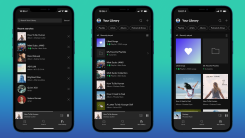How to Find Apple-Approved Independent Repair Shops for Your Mac
You wouldn’t catch me at an Apple retail store unless smoke was pouring out of my Mac. And even in the best of pandemic times, waiting at the Genius B

At this point, the statement “Google is creepy with your data” isn’t a shocking one. We know that Google and companies like it compromise our privacy and security every day in the name of business and profit; we just sort of, you know, deal with it? However, there’s some extra creepiness going on with Chrome lately—specifically if you use the browser on Android.
Mysk, a duo of app developers and security researchers, recently exposed Chrome’s shadiness on Twitter. In the tweet, Mysk brings to light that, by default, Chrome is sharing your phone’s motion data with the websites you visit. This is not cool.
To start with, this is—as I have pointed out—creepy af. The data comes from your phone’s accelerometer, the sensor responsible for tracking the device’s orientation and position. That sensor makes it possible to switch from portrait to landscape mode, as well as track you and your phone’s motion. For example, it empowers fitness apps to know how many steps you took, so long as you had your phone on you.
Since most of us keep our phones in our pocket or on our person, there is a lot of motion data generated on the device throughout the day. Google Chrome, by design, allows any website you click on to request that motion data, and hands it over with gusto. Researchers have found that these sites use accelerometer data to monitor ad interactions, check ad impressions, and to track your device (well, duh). Those first two, however, are infuriatingly sketchy; websites don’t just want to know if you’ll click on an ad or not, they want to know how you physically interact with these popups. Hey, why stop there? Why not tap into my camera and see what color shirt I’m wearing?
Delete the app from your phone. Kidding. I know the vast majority of people on Android aren’t going to want to switch from Chrome to another mobile browser. That said, privacy-minded users might want to jump ship to something more reputable—like Firefox—and, if so, good for you.
But there are plenty of benefits to sticking with Chrome, especially on Android (considering the platform is also designed and operated by Google). If you don’t want to take the most drastic step, you can simply toggle a setting to block Google from sharing this data. As Mysk points out in their tweet, you can disable motion-data-sharing from Chrome’s settings.
This Tweet is currently unavailable. It might be loading or has been removed.
Here’s how: Open the app, tap the three dots in the top-right corner, then choose “Settings.” Next, scroll down, tap “Site settings,” then “Motion sensors.” Turn off the toggle here to make sure no more third-party sites can ask for your motion data from here on out.

You wouldn’t catch me at an Apple retail store unless smoke was pouring out of my Mac. And even in the best of pandemic times, waiting at the Genius B

It’s probably the first thing you try when your computer is acting up: turn it off and back on again. But should you restart or shut down? Well that a

Slack has launched a new direct-messaging feature that allows people from different companies to talk to one another. No problems there, right? The se

It’s Apple day! And just when I was starting to wonder if the world still had the capacity to get excited about hour-long product announcements. At it

Spotify is overhauling the “Your Library” section of its mobile app with a new layout, better search filters, and shortcut options that should make si

“Find and Replace” is one of the most fun tools for getting data organized, fixed, and in whatever final state you need, and our friends over at How-T

The Google Phone app can now announce the caller ID for incoming phone calls out loud, so you’ll know who’s calling without having to eyeball your pho

Apple’s big iPhone update, iOS 15, is chock full of fun features. We’ve highlighted 36 we find particularly interesting or useful. But it’s not for ev
We are a comprehensive and trusted information platform dedicated to delivering high-quality content across a wide range of topics, including society, technology, business, health, culture, and entertainment.
From breaking news to in-depth reports, we adhere to the principles of accuracy and diverse perspectives, helping readers find clarity and reliability in today’s fast-paced information landscape.
Our goal is to be a dependable source of knowledge for every reader—making information not only accessible but truly trustworthy. Looking ahead, we will continue to enhance our content and services, connecting the world and delivering value.